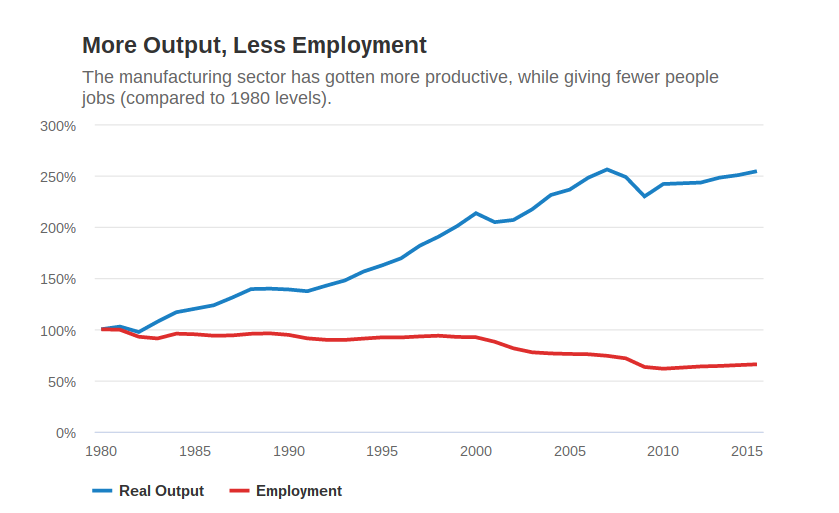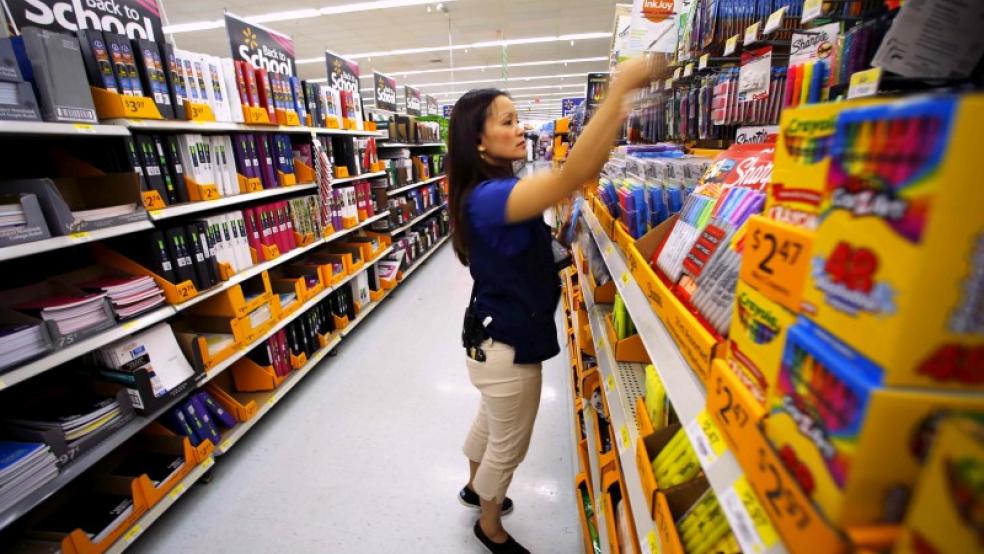A bit like a rooster taking credit for the sunrise, Donald Trump is now claiming responsibility every time a company decides to open or expand a facility in the U.S. The credit-taking is sometimes divorced from whether or not his impending presidency had any causal relationship with the decision.
The latest example is the decision by Fiat Chrysler to upgrade two plants in the Midwest and add 2,000 new jobs. Trump and his advisers leapt on the news immediately on Monday morning, suggesting that it was the prospect of a Trump administration that led the automaker to invest more in the U.S.
Related: Here’s What Americans Want Most to Hear from President Trump
They did this, even as they linked to news reports in which auto executives said that manufacturing expansions on this scale are decided on years in advance and that Fiat Chrysler is actually just executing a plan announced long before anyone seriously believed Trump could be elected president.
But whether or not Trump actually deserves credit for the creation or “reshoring” of these jobs is less important to experts on labor economics than the type of jobs he is focused on.
Trump was elected, in part, by the votes of men and women in states across the Rust Belt, where the brutal decline of heavy manufacturing between 1980 and 2000 left millions out of work.
Day after day in rallies in Wisconsin, Ohio, Michigan and Pennsylvania, he promised that he would bring back the glory days, when manufacturing jobs were plentiful and promised a solid middle-class lifestyle.
The problem is that those days just aren’t coming back. The U.S. lost 6.7 million manufacturing jobs between 1980 and 2014. If Trump convinced one company a week to create 2,000 new manufacturing jobs in the US, it would take 64 years to replace them.
Related: Trump Wants a Much Bigger Navy: Here’s How Much It’ll Cost
“[N]o one should be under the illusion that millions of manufacturing jobs are coming back to America,” Mark Muro writes in the MIT Technology Review.
Muro, a senior fellow and the director of policy at the Metropolitan Policy Program at the Brookings Institution, points out that contrary to Trump’s claim, relentlessly repeated on the stump, that “We don’t make anything anymore,” the U.S. manufacturing sector is actually extraordinarily strong.
“In fact, the total inflation-adjusted output of the U.S. manufacturing sector is now higher than it has ever been,” he writes. “That’s true even as the sector’s employment is growing only slowly, and remains near the lowest it’s been. These diverging lines—which reflect improved productivity—highlight a huge problem with Trump’s promises to help workers by reshoring millions of manufacturing jobs. America is already producing a lot. And in any event, the return of more manufacturing won’t bring back many jobs, because the labor is increasingly being done by robots.”

Chart: MIT Technology Review
If Trump really wants to help displaced factory workers, Muro says, he’d do better to focus on education, job training and retraining, and cash assistance to those displaced, rather than trying to reassemble a 1960s era manufacturing economy.
Related: 5 Reasons So Many Americans Are Living Paycheck to Paycheck
As it stands, Trump’s outsized attachment to the style of U.S. manufacturing he may remember from his childhood comes at the cost of attention to other U.S. workers who are being displaced from different jobs. Trump’s intervention to defer the planned closing of an air conditioner factory last year drove weeks’ worth of headlines and won Trump praise when Carrier Corp. agreed to keep about 800 workers in Indiana, for the time being, at least.
Contrast that with the attention Trump has paid to the announcement last week that the retail clothing chain The Limited was closing its 250 stores. That means the loss of some 800 full-time jobs and more than 3,000 additional part-time jobs.
The closing mirrors a broader trend in the retail industry. Trump’s one-time partner, Macy’s, announced the closure of dozens of stores this month as well. And while Trump at least didn’t cheer the company’s latest stumble, he also didn’t lament it. It’s not exactly clear why, especially given that the retail trade sector employs more Americans right now than the manufacturing sector has in well over a decade.
Related: Trump’s Job No. 1: Recoup the Jobs, Wages and Security Lost to Trade Deals
The same sort of technology-led innovation that has hammered the manufacturing sector is hitting the retail sector now, except that retail clerks are being replaced by web browsers instead of robots. And guess who’s doing all the jobs in the fulfillment centers that drive online retailing? Yep. Increasingly, it’s robots. Angel Gonzalez of the Seattle Times reported in January on the continued growth of what he called Amazon’s “robot army.”
The world’s largest e-commerce retailer said it has 45,000 robots in some 20 fulfillment centers. That’s a bigger headcount than that of the armed forces of the Netherlands, a NATO member, according to World Bank data. It’s also a cool 50 percent increase from last year’s holiday season, when the company had some 30,000 robots working alongside 230,000 humans.
While it won’t make him look as though he’s riding to the rescue, at least in the next news cycle, if Trump really wants to help American workers, he might focus less on a backward-looking return to a “greatness” he remembers from decades ago. Instead, he should be asking the smartest people he can find -- economists, technologists, innovators and entrepreneurs -- what the country will need to be great in a world where the direct input of human labor into the economy looks much different than it did in the past.





